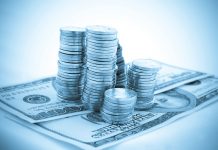Used car tax levy being contemplated
Given the recent strains on government income, the Revenue Department has given voice to a proposal to possibly introduce a tax on used cars. Having looked into the number of used car sales annually across the country, which currently stands at around three million units every twelve months, the Revenue Department believes the government is missing out on a substantial financial windfall.
If a levy of just 1,000 baht was added as a used-car tax then around three billion baht could be added to government coffers, minus, of course, the expenses involved in collecting the funds and policing the system.
The biggest difficulty is in the actual process of revenue collection, as most used car dealerships are not trading as legitimate companies and fudge their books to under report sales levels, thereby minimizing any taxation obligations.
Sales of used cars, according to media reports, are done on an open-ended ownership transfer deal which does not identify a purchaser or require registration with the Land Transport Department. This allows used car dealers to avoid tax payments.
The Revenue Department, as part of its study into the viability of the proposed scheme, is considering authorizing the Land Transport Department to collect the appropriate tax, in the same way the Lands Department handles government tax revenues for real estate purchases.
At this stage, major used car dealerships, which are properly registered as operating companies, are paying their share of the tax burden, but in many ways are being unfairly penalized because of operating within a properly constituted legal framework. Those hundreds if not thousands of used car dealers operating on the fringe of the taxation system are able to offer better prices sometimes simply because they know they have nothing to pay to the government.
The government’s excise tax refund scheme for first-time car buyers may have ended some time ago, but its revenue effects are still causing headaches. An estimated 90 billion baht was forgone in tax revenue and new car sales for the first two months of this year were down a whopping 45 percent, which, in turn, means less new car tax revenue accruing to government coffers.
Other populist policies espoused by the current government when it went to the 2011 election have also had long-term, and perhaps unforeseen, consequences on revenues. These include the reduction in corporate income tax payments from 30 percent to 20 percent, bringing the highest income tax rate down from 37 to 35 percent, and, at the lower end of the income scale, bringing the lowest tax rate down to just five percent.
Certainly, if tax enforcement measures were strengthened, the government could expect to reap the financial rewards. The question is whether they are willing to go down the enforcement route.









